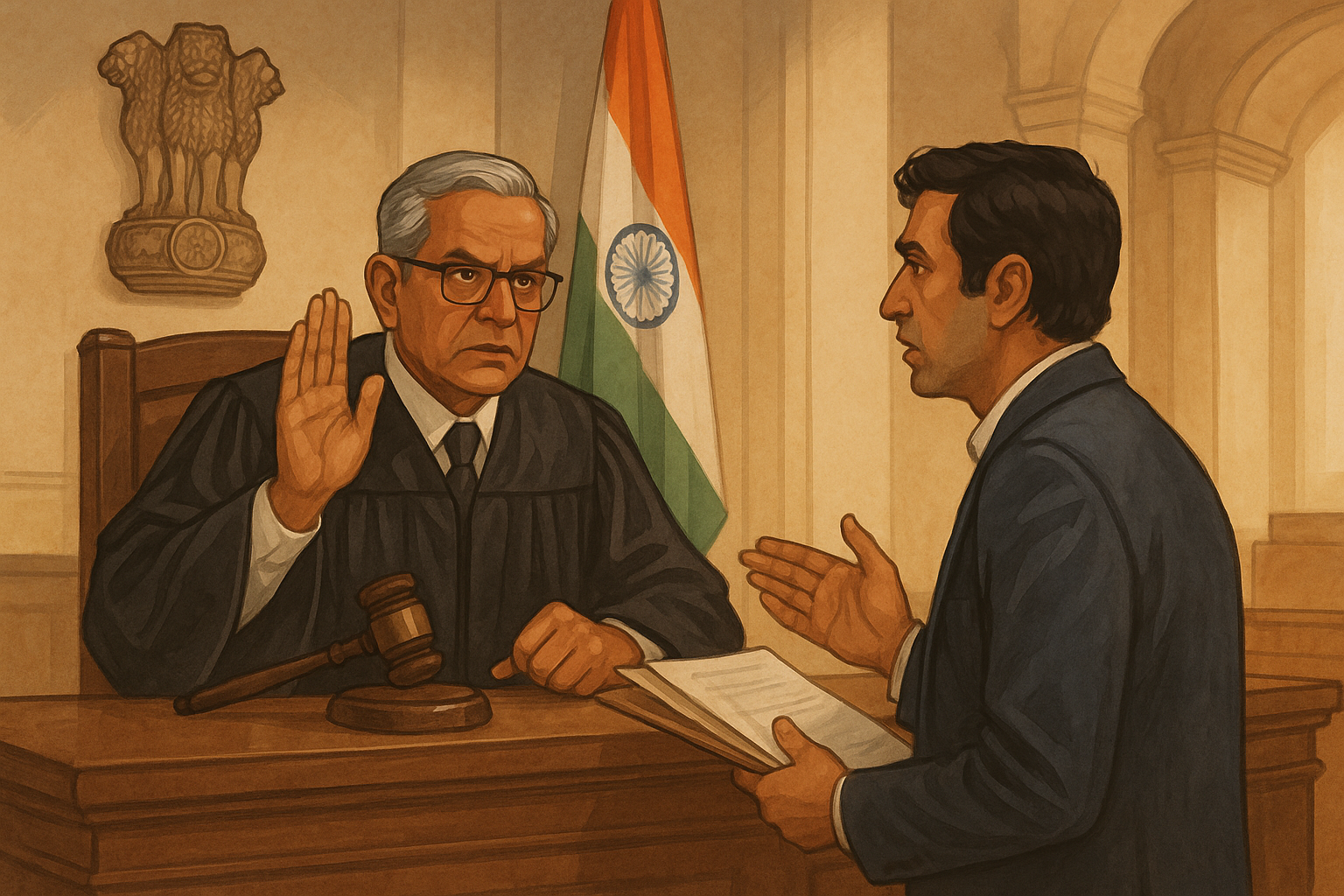Simplified Explanation of the Judgment
In a recent ruling, the Patna High Court emphasized the necessity of following due process under the Goods and Services Tax (GST) law, particularly the mandatory requirement of a personal hearing before passing an adverse assessment order.
In this case, the petitioner—a proprietor of a trading company—challenged a GST assessment order dated 30 August 2023. The petitioner argued that the order had been passed in violation of Section 75(4) of the GST Acts, which requires that a reasonable opportunity for a personal hearing be granted before finalizing a tax demand or penalty. The petitioner stated that no such opportunity was provided.
The court found merit in the petitioner’s argument. While earlier contentions related to limitation had already been settled against the petitioner in a previous case (M/s Barhonia Engicon Pvt. Ltd. v. Union of India, decided on 27 November 2024), the violation of Section 75(4) stood on its own footing. This statutory provision clearly mandates a personal hearing if the taxpayer requests it or if adverse action is proposed.
The High Court found that the tax department had failed to issue any notice for a personal hearing, which made the assessment process defective. As a result, the court quashed the impugned GST order and the related order in Form GST DRC-07.
Importantly, the court did not dismiss the entire proceedings. Instead, it remanded the case back to the Assessing Officer for a fresh decision. The petitioner has been directed to appear before the Assessing Officer on 15 January 2025. The officer is then required to complete the reassessment after hearing the petitioner, within three months or within the applicable limitation period, whichever is later.
This judgment reinforces the principle that even in a tax administration system largely driven by online processes, the right to a fair hearing remains vital and must be respected.
Significance or Implication of the Judgment
This judgment is highly significant for taxpayers and business owners across Bihar and India who are subject to GST scrutiny. It serves as a clear reminder to tax authorities that statutory procedural safeguards—especially personal hearings—cannot be bypassed. It also affirms that if such safeguards are not respected, courts will intervene to protect the taxpayer’s rights.
For government authorities, this decision stresses the importance of procedural compliance under GST law. The ruling promotes transparency and accountability in tax assessments, thereby increasing public trust in the legal and tax systems.
This judgment will likely be cited in future cases involving procedural lapses in GST proceedings, particularly where orders are passed without affording taxpayers a chance to be heard.
Legal Issue(s) Decided and the Court’s Decision with Reasoning
- Whether the GST assessment order was valid despite not granting a personal hearing to the taxpayer?
- Decision: No, the assessment order was set aside.
- Reasoning: The failure to grant a personal hearing before passing the assessment violated Section 75(4) of the GST Acts, which is a mandatory procedural requirement.
- Whether earlier decisions on limitation could be used to sustain the order?
- Decision: No, limitation arguments had already been addressed in a previous judgment (Barhonia Engicon Pvt. Ltd. case), but that did not cure the present procedural defect regarding personal hearing.
- What remedy was provided?
- Decision: The matter was remanded to the Assessing Officer with a direction to issue a fresh order after giving the petitioner a personal hearing.
Judgments Referred by Parties
- M/s Barhonia Engicon Pvt. Ltd. v. Union of India & Ors., judgment dated 27.11.2024 (referred to by respondents).
Judgments Relied Upon or Cited by Court
- M/s Barhonia Engicon Pvt. Ltd. v. Union of India & Ors., judgment dated 27.11.2024 (cited in court’s reasoning on limitation).
Case Title
Niranjan Kumar Mishra v. The Union of India & Ors.
Case Number
Civil Writ Jurisdiction Case No. 9205 of 2024
Coram and Names of Judges
Hon’ble the Chief Justice K. Vinod Chandran
Hon’ble Mr. Justice Partha Sarthy
Names of Advocates and who they appeared for
Mr. Aman Raja, Advocate — for the Petitioner
Dr. K.N. Singh, ASG; Mr. Anshuman Singh, Sr. SC (CGST & CX); Mr. Vivek Prasad, GP-7 — for the Respondents
Link to Judgment
MTUjOTIwNSMyMDI0IzEjTg==-2n5qjywO7kI=
If you found this explanation helpful and wish to stay informed about how legal developments may affect your rights in Bihar, you may consider following Samvida Law Associates for more updates.









